
Argentina is divided into twenty-three federated states called provinces and one called the autonomous city of Buenos Aires, which is the federal capital of the republic as decided by the Argentine Congress. The provinces and the capital have their own constitutions and exist under a federal system.

Chaco, officially the Province of Chaco, is one of the 23 provinces in Argentina. Its capital and largest city, is Resistencia. It is located in the north-east of the country.

Entre Ríos is a central province of Argentina, located in the Mesopotamia region. It borders the provinces of Buenos Aires (south), Corrientes (north) and Santa Fe (west), and Uruguay in the east.
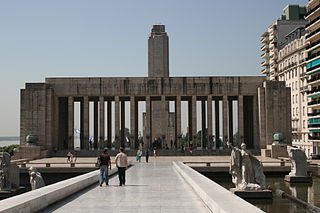
The Province of Santa Fe is a province of Argentina, located in the center-east of the country. Neighboring provinces are from the north clockwise Chaco, Corrientes, Entre Ríos, Buenos Aires, Córdoba, and Santiago del Estero. Together with Córdoba and Entre Ríos, the province is part of the economico-political association known as the Center Region.
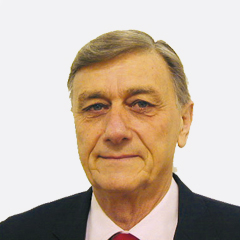
Hermes Juan Binner was an Argentine physician and politician who served as Governor of Santa Fe from 2007 to 2011. Binner was the first Socialist to serve as governor of an Argentine province, and the first non-Peronist to rule Santa Fe since the last transition to democracy in 1983.
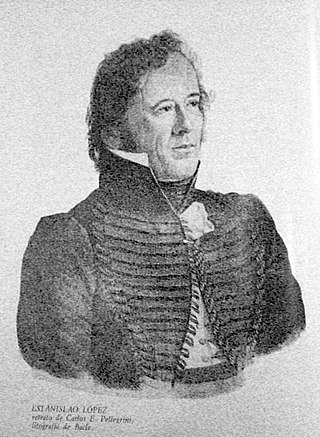
Estanislao López was a caudillo and governor of the province of Santa Fe, Argentina, between 1818 and 1838, one of the foremost proponents of provincial federalism, and an associate of Juan Manuel de Rosas during the Argentine Civil War. He is considered an iconic figure in Santa Fe and one of the most influential political actors in the Argentine conflicts of the 1820s and 1830s.

The United Provinces of the Río de la Plata, earlier known as the United Provinces of South America, was a name adopted in 1816 by the Congress of Tucumán for the region of South America that declared independence in 1816, with the Sovereign Congress taking place in 1813, during the Argentine War of Independence (1810–1818) that began with the May Revolution in 1810. It originally comprised rebellious territories of the former Spanish Viceroyalty of the Río de la Plata dependencies and had Buenos Aires as its capital.

Agustín Oscar Rossi is an Argentine Justicialist Party politician. Rossi has held a number of important political posts throughout his career, most notably as Minister of Defense during the presidencies of Cristina Fernández de Kirchner (2013–2015) and Alberto Fernández (2019–2021).

Aldo Emilio Tessio was an Argentine politician belonging to the Radical Civic Union (UCR). He served a Governor of Santa Fe Province from October 12, 1963, to June 28, 1966.
Mariano Vera was a caudillo and governor of the Santa Fe Province, United Provinces of the Rio de la Plata, between 12 April 1816 and 23 July 1818, all during a period of change driven by revolution and civil war in this portion of South America.

The Governor of Santa Cruz is a citizen of the Santa Cruz Province, in Argentina, holding the office of governor for the corresponding period. The governor is elected alongside a vice-governor. Since 2015, the governor of Santa Cruz has been Alicia Kirchner.
The Arequito revolt, was a military revolt by officers of the Army of the North through which they recused themselves from the fight in the civil war against the federales. Their intention was to return to the front of the war against the royalists in Upper Peru, an objective that they could not ultimately meet. It signified the beginning of the disintegration of the Supreme Directorship and was one of the main causes of the centralist defeat at the Battle of Cepeda.
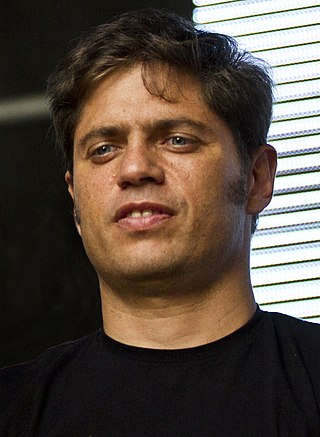
The Governor of Buenos Aires Province is a citizen of the Buenos Aires Province of Argentina, holding the office of governor for the corresponding period. The governor is elected alongside a vice-governor. Currently the governor of Buenos Aires Province is Axel Kicillof since December 11, 2019.
The Revolution of 11 September 1852 was a conflict between the Province of Buenos Aires and the government of Justo José de Urquiza after the latter triumphed over Juan Manuel de Rosas at the Battle of Caseros.
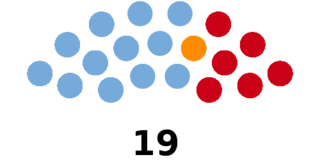
The Legislature of Santa Fe Province is the bicameral legislature of the Santa Fe Province, in Argentina. It comprises an upper house, the Senate, and a lower house, the Chamber of Deputies. It is one of eight bicameral legislatures in the country.

Omar Ángel Perotti is an Argentine accountant and Justicialist Party politician. He was Governor of Santa Fe from 2019 to 2023, National Senator from 2015 to 2019, and from 2011 to 2015 he was a National Deputy, always representing the same province. He was also intendente (mayor) of Rafaela from 1991 to 1995 and again from 2003 to 2011.

Verónica María Magario is an Argentine politician, currently serving as Vice Governor of Buenos Aires Province, alongside Governor Axel Kicillof, since 10 December 2019. From 2015 to 2019, Magario was intendente (mayor) of La Matanza, the most populous partido in the Greater Buenos Aires metropolitan area.

María Lucila Lehmann is an Argentine politician who was a National Deputy elected in Santa Fe from 2017 to 2021. She is a member of the Civic Coalition ARI, and sat in the Juntos por el Cambio parliamentary inter-bloc.

Luis Gustavo Contigiani is an Argentine politician who was a National Deputy elected in Santa Fe Province. Politically not affiliated to any party, Contigiani was elected on the Progressive, Civic and Social Front list in 2017, and for a time was the sole representative of the Socialist Party (PS) in the National Congress. The PS barred Contigiani from continuing to be the party's representative due to his opposition to the legalization of abortion in 2018.

The Legislature of Córdoba is the unicameral legislative body of Córdoba Province, in Argentina. It comprises 70 legislators, of which 23 are elected directly in each of the 23 departments of Córdoba, while the remaining 44 are elected in a single province-wide district. All legislators serve four-year terms and are elected concurrently.



























